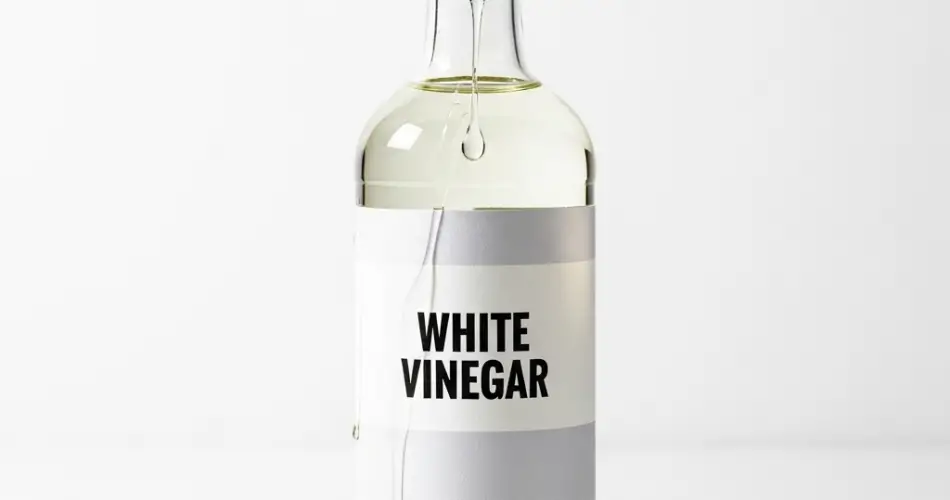Vinegar is a common household item with surprising benefits beyond the kitchen. In gardening, it can be a powerful natural ally—if used correctly. From pest control to soil management, vinegar offers multiple applications that can enhance plant health, clean tools, and even keep unwanted weeds at bay. However, it’s essential to understand how and when to use vinegar to avoid harming your plants.
Let’s explore the effects of applying vinegar to your garden and the smart, safe ways to use it.
What Is Vinegar Made Of?
Vinegar is a liquid composed mainly of acetic acid and water. Most household vinegar contains around 5% acetic acid, which gives it its sour taste and strong smell. The acidic nature is what makes vinegar effective as a cleaning agent—and in gardening, that same property can be both helpful and harmful, depending on how it’s used.
1. Weed Killer for Paths and Driveways
One of the most common and effective uses of vinegar in the garden is as a natural weed killer. Vinegar breaks down the cell structure of plants, causing them to dry out and die. It works best on young, tender weeds and is ideal for cracks in pavement, gravel areas, and around fence lines where you don’t want anything to grow.
How to use:
-
Use undiluted white vinegar (5% acetic acid).
-
Apply directly to unwanted plants on a sunny day.
-
Avoid spraying on desirable plants, as vinegar is non-selective and will harm anything it touches.
2. Acidifying the Soil for Acid-Loving Plants
Some plants, like azaleas, hydrangeas, rhododendrons, gardenias, and blueberries, prefer acidic soil. If your garden soil is alkaline, vinegar can help temporarily adjust the pH to suit these plants.
How to use:
-
Mix 1 tablespoon of white vinegar into 1 liter (about 1 quart) of water.
-
Use this mixture to water acid-loving plants once every few weeks.
-
Avoid overuse, as too much acid can damage roots and affect soil microorganisms.
Important: Always test your soil’s pH before attempting to alter it. Over-acidifying can create more problems than it solves.
3. Pest Repellent
Vinegar’s strong smell can deter certain insects and pests. It’s not a pesticide but works as a repellent for ants, fruit flies, and even some larger pests like cats and rabbits that may dig in your garden beds.
How to use:
-
Mix equal parts vinegar and water in a spray bottle.
-
Spray the mixture around the base of plants, garden edges, or wherever pests are entering.
-
Do not spray directly on plant foliage, especially delicate leaves.
4. Cleaning Pots and Gardening Tools
Calcium deposits, algae, and rust can build up on garden pots and tools. Vinegar is a natural, non-toxic cleaner that dissolves these residues effectively.
How to use:
-
Soak tools or pots in a mixture of 1 part vinegar to 2 parts water for 30 minutes.
-
Scrub and rinse thoroughly.
-
This keeps your tools hygienic and extends their lifespan.
5. Rooting Agent (Myth vs. Reality)
There’s a common gardening tip that suggests vinegar can act as a natural rooting hormone. However, this is not supported by evidence. While a very dilute solution may not harm cuttings, vinegar does not contain hormones necessary for root development and could even damage tender stems.
It’s better to stick to commercial rooting powders or homemade alternatives like honey or willow water, which offer nutrients and enzymes more suitable for encouraging root growth.
6. Fungus and Mold Treatment (Use with Caution)
Vinegar has antifungal properties and can be used to treat mildew and mold on some surfaces and tools. However, when it comes to plants, direct application can burn leaves and damage soft tissues.
How to use:
-
Use a very diluted mix (1 tablespoon of vinegar per liter of water).
-
Test on a small area of the plant first.
-
Spray only on affected parts, and avoid using during hot or sunny weather.
Final Tips for Using Vinegar in the Garden
-
Always dilute vinegar when using it near living plants.
-
Never overuse it, especially in garden beds, as it can alter soil chemistry.
-
Do not mix vinegar with other chemicals, like bleach or ammonia, as this can create dangerous fumes.
-
Label your spray bottles clearly to avoid accidental misuse.
The Bottom Line
Vinegar is a natural and cost-effective garden tool with multiple uses. From killing weeds to acidifying soil and cleaning tools, it can be part of your gardening routine when used responsibly. However, vinegar is powerful, and misuse can lead to plant damage or soil issues. Always start with small, diluted applications and observe how your plants respond.
With careful use, vinegar can help you maintain a clean, healthy, and thriving garden—naturally.



